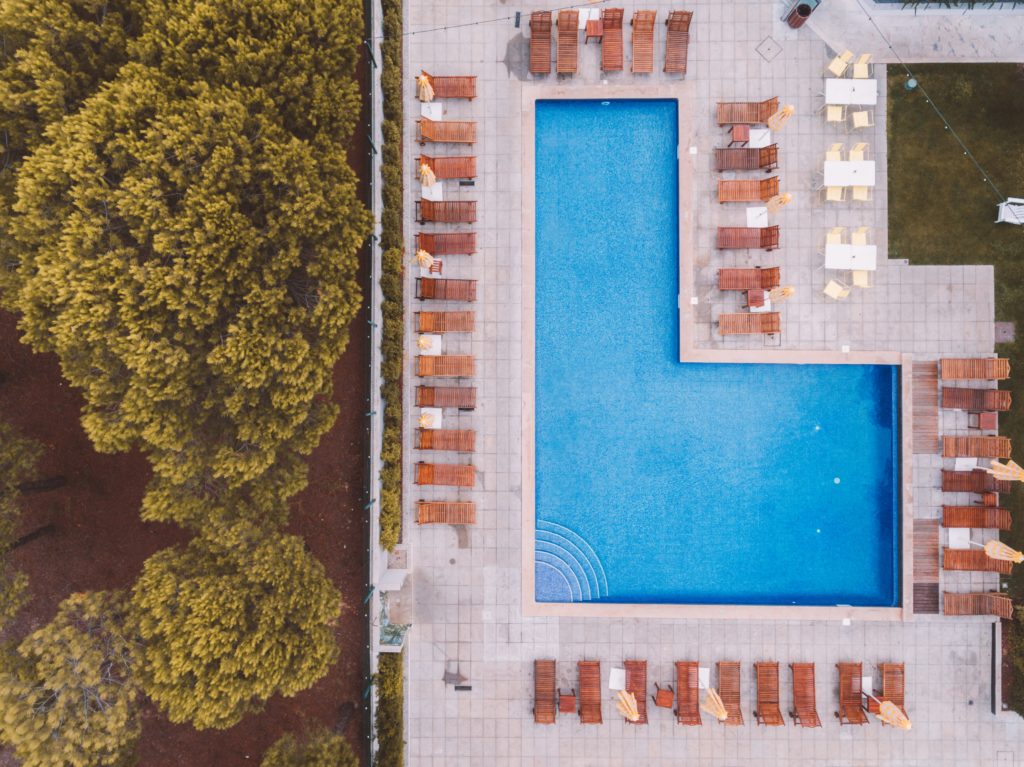When you’re choosing the perfect property to purchase as a rental, there are a lot of different factors to take into account. During the process, you have to balance quantifiable factors like property taxes, average rents, and property values with more qualitative considerations such as the desirability of the neighborhood and the property itself. That's why every fee and cost, including HOA fees, should be carefully analyzed.
As you get nearer to purchasing a property, you’ll likely end up with a shortlist of homes that fit within your criteria, goals, and budget.
If your shortlist of potential properties includes some houses that are governed by an HOA, you might be wondering whether that’s a good thing or a bad thing. Depending on the particular homeowners association, your rental goals, and your willingness to relinquish some control over your property, you might find that HOA houses fit the bill perfectly. Or, on the other hand, you might decide you don’t want anything to do with a self-governed organization telling you what you can and can’t do.
Either way, determining whether you should invest in HOA houses is a decision you should make very deliberately. Even if paying a monthly HOA fee doesn’t wreak havoc on your bottom line, you might find that the benefits of an HOA community simply don’t outweigh the costs.
A homeowner’s association (HOA) is an organization found in “common interest” communities. You commonly find HOAs in condo buildings, planned communities, subdivisions, and in some neighborhoods. Homeowners in communities with HOAs pay fees that go towards maintaining the neighborhood or the units. These fees might go towards the maintenance of communal lawns, parks, pools, roads, and parking lots, for example.
These are self-governing organizations that are usually run by resident homeowners that have been elected to oversee the management of the HOA as a part of a board of directors.
The responsibilities of an HOA can vary widely based on the kind of property and the location. HOAs can consist of condos, high-rises, townhouses, or individual houses. As an example of the way that responsibilities can differ between HOAs, a townhouse community might only be in control of common areas, whereas a condo HOA might oversee the entire property’s management.
There are a collective set of rules and bylaws that govern properties within an HOA. These bylaws and HOA fees exist in order to maintain uniformity, cleanliness, and property values in the community.
When you buy a property that is governed by a homeowners association, you have to pay a certain amount of money every month towards the HOA. Condominium, apartment, and planned community property owners pretty much always have to pay HOA fees, but some neighborhoods composed of single-family homes also belong to HOAs.
If you buy a rental property in an HOA, you will automatically become a member of the association. As a member of the HOA, you’re required to pay dues in the form of monthly fees, known as HOA fees.
These fees are typically used to cover the cost of common area maintenance. However, what is included in fees and what is covered by fees can vary a lot between HOA communities.
If you fail to pay the monthly fees, an HOA has the authority to take action against you. What this action consists of depends on the agreement that the homeowner and the HOA have agreed upon in the contract signed at closing. Later on in the article, we’ll look into the potential consequences of not paying HOA fees.

How much you are expected to pay in HOA fees depends on the types of amenities that the community offers. For communities with little or no amenities, the fees might be as low as $100 per month. For HOA communities that offer extensive amenities, homeowners can pay $1,000 per month or more. The average range for HOA costs in the U.S. is between $200 and $300 per month.
Location can have a big impact on how high your HOA fees are, as well. The U.S. state with the lowest median HOA fee is Wyoming, coming in at $100 per month. New York and Hawaii have the highest median HOA fees in the country, with $570 per month and $520 per month, respectively.
If you purchase a house in an HOA, you’ll need to pay your portion of the association operating costs, at minimum. These costs can include things like:
Depending on the type of community, HOA fees also typically cover any common areas such as patios, lobbies, tennis courts, elevators, and community clubhouses.
One thing you’ll want to know about HOA fees before investing in a property in this type of community is the special assessments that can be levied by HOAs. What this means is that you can be charged fees above and beyond your monthly fees under certain conditions. Typically, HOA boards only use this power in emergency situations.
If you’re shopping around for your next rental or investment property, you’ll likely come across some units or homes that are governed by an HOA. Whether or not investing in an HOA house is a good idea will depend on your real estate investment plan and goals.
If you’re considering buying a rental property with an HOA attached, you’ll definitely want to get familiar with the Declaration of Covenants, Conditions, and Restrictions (CC&Rs) of the homeowners association.
While the goal of CC&Rs is to preserve, protect, and enhance the value of property in the communities, the rules outlined in this document might not mesh well with your investment goals.
In many HOAs, you’ll find that the rules are sensible and nonproblematic. For instance, a rule that requires that you keep your lawn mowed might not bother you, as you might have planned to take care of lawn maintenance as a part of the rental fees you charge. Other rules, though, might come off as unreasonable in a way that is a dealbreaker.
For example, maybe you’ve decided that you want to fence the yard of the property to make it more appealing to families. However, you might find that the CC&Rs explicitly don’t allow fences.
If you do decide to invest in a property that’s governed by an HOA, it means that you’re deciding to uphold the rules outlined in the CC&Rs. Otherwise, you’ll probably face fines, penalties, or other consequences, not to mention a lot of frustration.
There are definitely some advantages to HOAs for landlords, but at the same time, an HOAs structure and fees might ultimately mean that this type of property isn’t worth it for you.
In the next two sections, let’s dive into the pros and cons of investing in an HOA house.
Buying a property that has an HOA attached as a rental property has a number of advantages. For example, some investors appreciate having the peace of mind that the community as a whole is being maintained up to a certain standard, helping to stabilize property values.
While some homeowners find bylaws restrictive and stifling (which, by the way, they definitely can be,) these bylaws also help to make sure that the community stays in tip-top shape.
When you buy a freestanding property in a neighborhood without an HOA, you are making a bet that the area will maintain the same appearance or improve over the next several years or decades. There are few things as frustrating as doing a great job with your rental property, only to have the neighborhood decline in a way that is beyond your control. If you find yourself in this position, you might have to reduce rents or offload the property if you’re concerned that property values won’t rebound anytime soon.
You don’t have to worry about this to the same extent in an HOA community. Bylaws are enforced through warnings and fees to help keep property owners in line with the rules of the HOA. With most home owner’s association communities, you don’t have to worry that a neighbor will get away with a cluttered porch or a driveway full of broken-down cars.
When you buy a rental property, you either need to manage the place yourself or hire property management to take care of it for you. Either way, maintenance and repairs can be costly depending on the type of property, the location, and, in some regard, your luck.
For some investors, buying a property with an HOA attached can be a great way to reduce their responsibilities when it comes to upkeep. Depending on the HOA, things like lawn care, roof repair, general landscaping, pest control, trash removal, plumbing, snow shoveling, and exterior painting are all covered by the HOA fee. Some investors find it attractive to be able to pay for all of these services at once rather than having to seek out individual vendors for each job.
It’s important to note, though, that the responsibilities that HOAs take on (and what services fees cover) can vary greatly. You’ll want to thoroughly research what your fees go towards and what is your responsibility before investing in an HOA house.

One of the biggest hurdles for landlords is attracting high-quality tenants that will pay rent on time and generally not cause any trouble. On top of that, it can be appealing to find tenants who will be happy renting for years rather than months, as it can reduce the amount of time and money you spend trying to fill vacancies.
HOAs can help to attract good tenants, particularly if there are a lot of attractive amenities offered in the community. Things like walking trails, a community clubhouse, a pool and a sauna, and tennis courts can help you attract and retain good tenants.
Additionally, communities with lots of top-tier amenities allow investors to charge higher rental rates.
While there are certainly some good things about investing in HOA properties, you’ll definitely want to understand the potential downside to this strategy before jumping in. For example, you might find that the HOA fees cut into your cash flow too much, or that the restrictions put in place by HOAs offer too many obstacles between you and your renovation goals.
While buying a rental property in an HOA community can reduce risk in some ways, such as knowing that the property values will at least stay stable, it also comes along with its fair share of risks.
It’s important to understand that an HOA can step in and really interfere with your rental property business at just about any time. It’s possible that you could buy an HOA house, rent it out, and everything’s going fine. Then, seemingly out of the blue, the HOA changes its bylaws and informs you that you can no longer use the home as a rental.
In this instance, you might find that you are in the clear as long as your current tenant is living in the property. However, once they move out you can’t keep using the property as a rental.
As you might imagine, this is a pretty terrifying potential for any rental property investor. Not only would they be forced to foot the mortgage themselves until they found a buyer or another solution, but they’d also have to take care of those pesky HOA fees.
As mentioned earlier, special HOA assessments can mean that you have unexpected costs to cover that you couldn’t plan for. When the HOA board decides that something needs to be replaced or repaired, you end up getting a bill for your portion.
Before you purchase a property in an HOA, it’s a good idea to look at what is covered by HOA fees and what state common areas are in. If you find that the common areas are well-maintained, there’s less of a chance that you will get a surprise bill. However, if it's clear that the maintenance obligations of the HOA haven’t been being fulfilled, you could end up having to pay a portion of the cost to deal with common areas that are in disrepair.
You can also review the financial statements of an HOA to learn how much funds they have in reserve. If they don’t have any money set aside for a rainy day, that’s a good sign that you can expect a special assessment if you purchase the property. HOAs will also usually have an outside accountant run a reserve study, which determines how much money they should set aside for future repairs.
With this information, you can then compare the reserve study with their reserve fund and figure out whether there is adequate funding in their reserves. This will give you an idea of whether or not you can expect special assessments will be on the horizon.
Another big concern when it comes to properties in HOA communities as rentals is how they can cut into your cash flow. Of course, you should be putting some funds aside for maintenance and repairs regardless of whether or not the property has an HOA attached. In some HOA communities, you might find that the monthly fees are justified relative to how much you would spend on maintenance.
However, there are definitely communities that have excessive fees that could seriously hurt your cash flow. As we discussed above, HOA fees can range from $100 a month to several thousand dollars a month. Depending on how much you can charge for rent and what services are covered by the fees, you might find that the numbers simply don’t add up in some of the more expensive HOA communities.
Another thing to keep in mind is that it’s common for HOA fees to increase over time. This is a factor that you simply don’t have any control over, which can make it difficult to assess your cash flow and ROI over time.
(Are you trying to figure out whether or not you’ll qualify for a mortgage for a rental property? One important factor is your debt-to-income ratio. You can learn more about the DTI ratio here.)

For some investors, renovating a property to make it appealing to tenants is one of the most exciting parts of the process. When you buy a property that doesn’t have an HOA attached, you are free to renovate in the ways that you want to so long as you abide by building codes and zoning requirements. In an HOA, though, there are restrictions and approval processes that can slow down or shut down your renovation goals.
HOAs can typically control the changes you make to the exterior of your property. This might include the size and type of fence you install, the paint color you choose, and a lot more.
On top of that, interior repairs and renovations often require the approval of the HOA. This means that you might have to bring any work you want to do to the inside of the property to the HOA, who will decide whether or not the changes you’re making fit with the community guidelines.
It’s also common for HOAs to require that any repairs or renovations are done by licensed professionals. If you were planning on saving money by doing the work yourself, you might be out of luck. Finally, the work that is done inside your home can be inspected by the HOA once it’s completed.
As you might imagine, this can create a lot of frustration for investors and can create a conflict situation between the investor and the HOA. Some HOAs are more reasonable, but others might require that you have the smallest changes approved, such as installing new light fixtures.

If you decide to buy a rental property that’s governed by an HOA, you’ll sign a document at the closing that says that you’ve read and agree to the CC&Rs. Different HOAs will have different bylaws outlined in these documents, so you’ll want to be very familiar with them before closing the deal.
Some typical requirements and restrictions found in HOAs govern how you:
When you’re buying a property to turn into a rental, you’ll need to consider whether or not your tenants will be willing and able to abide by the bylaws outlined in the CC&Rs.
If you (or your tenants) violate the rules of an HOA, you’ll face penalties. These can include:
Don’t plan on simply ignoring the fines that you’re tasked with paying, either. If you don’t pay fines or comply with other penalties, the HOA can choose to place a lien on your property if they are allowed to under state law. Depending on the location and the situation, the HOA might be required to file and win a lawsuit against you before placing a lien on your home.
If this is the case, the HOA can place a lien on your property after getting a money judgment from the court and recording it in the county records. If the HOA’s governing documents and state law allow, the HOA can also foreclose the lien.
It’s worth looking into the state laws where you’re planning on investing in a rental property for this reason. Some states don’t allow liens for unpaid fines. Additionally, some states prohibit or restrict foreclosures if the lien from the HOA only consists of unpaid fines and other related costs.
In short, the answer to this question is yes. Homeowners association boards really have a lot of freedom to create restrictions on leases. They can do everything from requiring that they screen potential renters and disallowing certain types of pets to limiting the number of leases permitted per year.
It is fairly common for homeowners and HOAs to have disagreements, and the restrictions against renting out property can lead to quite a bit of conflict. This is something worth thinking about even if you’re planning on using your HOA home as a primary residence for now, but considering renting it out in the future.
Let’s take a look at some of the restrictions you might encounter if you try to buy a rental property in an HOA.
As mentioned above, some HOAs have rules that you can only rent out a property or unit a certain number of times per year. Some complexes will allow renting out an HOA home twice per year, but it’s more common to restrict leases to one per year.
It’s also common for HOAs to have a mandatory waiting period. For example, it might be required that you own the property for a full year before you’re allowed to rent it out. Depending on your plan for the property, this could be a deal-breaker.
You might also find that an HOA has a minimum lease period. For example, it might be required that leases are 30 days or 90 days at minimum. If you’re planning on being a landlord for long-term tenants, this shouldn’t be a big deal, but it would definitely limit or rule out the potential of using the property for vacation rentals.
Some HOAs might also have a restriction over the entire community in the form of a rental cap. This is a rule that states that only a certain number of houses or units are allowed to be rented out at one time.
A common limit in this form is 20%. This means that you could end up being out of luck for your rental property if 20% of the units or properties are already being used as rentals.
Another absolutely essential thing to understand when you buy a rental property in an HOA is the potential control the board has over who you take on as a renter. If you’re planning on renting out a unit in an HOA-governed building, the board can ultimately have the final say of who moves into your unit.
HOA boards can require that renters have to meet certain financial criteria, agree to a background check, prove that they were good tenants previously, and interview in person with an HOA board member.
You’ll want to be very clear on what the rules and bylaws in an HOA are before you choose to purchase a property to rent out. While some landlords might not have a problem with the HOA board screening tenants and having a great deal of control over the process, others might actually appreciate having someone else do the hard work of finding good tenants.
As you can see, there are a lot of things to take into consideration when it comes to whether or not you should buy an HOA house as a rental. In the perfect scenario, owning an HOA governed rental can simplify your maintenance responsibilities, help you attract tenants, and help to boost your property value over time.
On the other hand, though, buying a rental property in an HOA community can be a real-life nightmare. You might find that the board pushes back at every step of the process in a way that seriously damages your cash flow goals for the property, not to mention how frustrating and time-consuming this type of issue can be. Or, you might be very happy with your HOA rental property until they raise the fees, change the bylaws, or otherwise interrupt your sweet source of passive income.
Before you invest in any property, it’s important to make sure that the numbers add up. This is particularly true for HOA houses, as you’ll want to ensure that those HOA fees don’t interfere with your ability to have positive cash flow. At RentalPropertyCalculator.com, you can input all of your costs (including HOA fees) and income to double-check that this property is a good buy.
We encourage you to share this article on Twitter and Facebook. Just click those two links - you'll see why.
It's important to share the news to spread the truth. Most people won't.